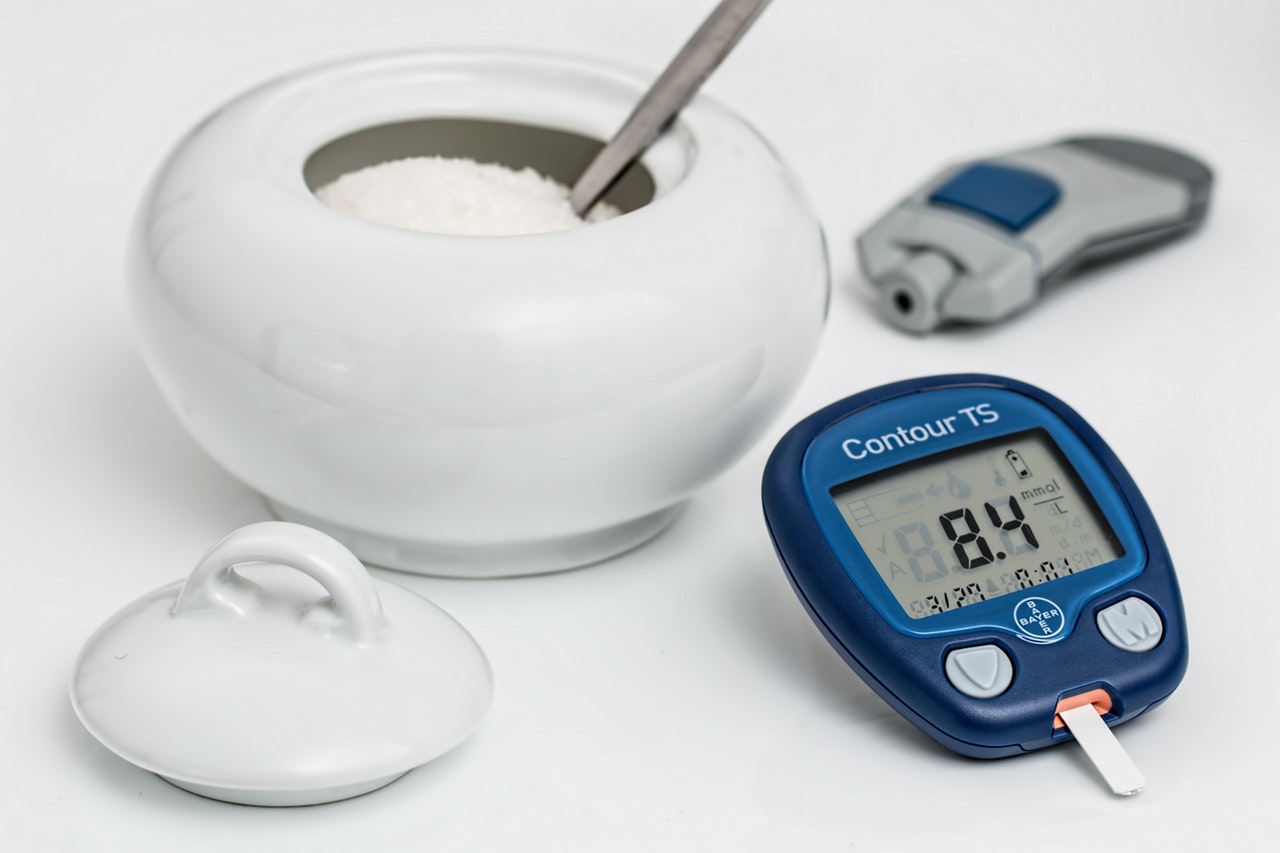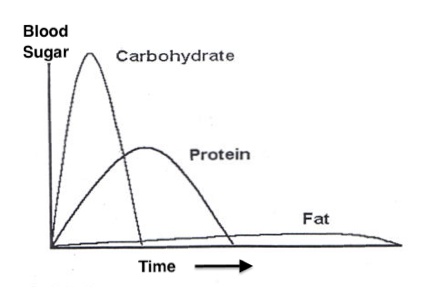
02 Oct The True Cause of Weight Gain
You’ve cut your calories because calories cause weight gain. It worked for a bit and then you gained it back. You exercised more and still couldn’t get results. You gave up fat. You tried diet drinks.
Nothing led to lasting weight loss.
That’s because you didn’t know the true cause of extra weight. It’s insulin. Insulin is the hormone that rises in response to food. So when you eat, your blood sugar goes up, and then insulin goes up to properly lower your blood sugar back down. If you aren’t burning off the blood sugar for energy, the insulin will make sure it’s stored as fat.
That’s kind of an oversimplification. But you feel the effects of the blood sugar/insulin balance whenever you get hangry (hungry+angry) or when you crash and feel foggy and tired after eating. And then you are hungrier than ever. You also see the results in your middle. Your widening waistline is a result of insulin storing blood sugar as fat. As annoying as that fat is, it’s nature’s way of saving you some energy for times when food is scarce. And, if you keep your blood sugar high enough for long enough, your own insulin can’t keep up and you can get diabetes.
I love knowing this because this is news I can use. I take the principle and apply it to my life. I still have more weight to lose, but I feel like I’m on to the true cause of overweight.
How to use the insulin/blood sugar balance
The first thing to know is that some foods spike insulin a lot, some a little, and some hardly at all. The ones that spike insulin a lot are sweetened and processed foods. That includes candy, cookies, chips, cakes, soft drinks, and other sweets. It also includes breads and potatoes. All the wheat foods, even if it’s whole grain, like pasta, pizza, crackers, and sandwiches, spike blood sugar. The higher the blood sugar, the higher the insulin, and the more likely we get fat. So I avoid eating these foods whenever possible. Of course, I’m human, and I eat some of this, but I’ll explain how in a minute.
The foods that spike insulin the least are the fats and oils. So fat does not make you fat, contrary to outdated and inaccurate advice. The trick is to eat the healthy fats like olive oil. Load it up on salads, saute vegetables in it, or roast vegetables with it. It tastes great. To choose healthy fats, think that if a food is high in fat, it’s probably a good choice. Like avocados, salmon, nuts, seeds, and olives.
The middle foods are protein and vegetables. Proteins like meat, chicken, fish, and eggs spike blood sugar more than fats, but less than the sweets. The same goes with vegetables like asparagus, broccoli, greens, and cabbage. The fiber in the vegetables keeps them from spiking insulin. You knew I would say to eat vegetables, didn’t you. So meat and vegetables are pretty safe to eat for insulin/blood sugar balance. Guilt free food is great.
You’re probably wondering where fruit fits in. Fruit like bananas can spike insulin but bananas have good nutrition. And fruit like berries or lemons and limes don’t spike insulin much at all. But fruits, and root vegetables like potatoes or beets, are nutrient dense and good foods. That means it’s good to eat them, but consider pairing them with foods that won’t spike blood sugar.
If you combine foods, like in a typical meal of meat, veggies, and a starch, you get the average insulin spike of all the foods. So the fat blunts the effect of the starchy or sweet food. There’s even a system for tracking all of this. It’s called the glycemic index, and each food gets a rating from 0 to 100. Sugar is something like 100, and butter isn’t even on the chart, because it has so little effect on blood sugar. You don’t need to learn the glycemic index of each food, but you can know that if you combine foods, you are getting the average glycemic index. So if you want to have a treat that could spike blood sugar, have it with a meal or after a meal as dessert. That’s my secret to not feeling deprived. I eat a few bites of sweets after my dinner occasionally.
Here’s a graph that gives an idea of how your blood sugar and insulin can spike based on food you eat. Notice how starchy carbs and sweets are like a roller coaster ride. It’s the sharp rise and fall that drives hunger and weight gain.

The ultimate control of insulin
Whenever you eat food, you spike insulin some. So that makes you wonder, if you don’t eat anything at all, then you’re not spiking insulin. That’s true. That’s called fasting. It’s becoming popular now and I’ve tried all kinds of versions. You can read more about it here. But fasting is not for everybody, especially for those on certain medications. Talk to your doctor to be sure. It’s also not smart to do a long fast if you are used to eating lots of starchy carbs and eating often. That’s a recipe for getting hangry and it’s too much stress on your body. And stress drives weight gain so you wouldn’t get all the benefits. It’s better to ease into a fast by lengthening time between meals gradually.
The end result is that fasting has many health benefits, besides controlling insulin. It’s probably one of the most sure-fired ways to lose weight, because it prevents the insulin spike, and allows the body to burn its own fat for fuel.
I love helping people get on top of their weight loss. I have more tricks and hacks to optimize your health. I’m Board Certified and I teach health coaching. Contact me for a free intro phone call and let’s see if we can work together.
Comments: How does your food affect you? Have you felt the effects of an insulin spike?
Paleohacks: Foods for Blood Sugar
Dr. Fung: Weight Loss
Chris Kresser: Marcronutrient Ratios
Bulletproof: Don’t Fear the Fat
WebMD: Glycemic Index
Pocket: Sugar and the Brain
Mark’s Daily Apple: Blood Sugar Normalized
This article is for information purposes only. See Disclaimer below.



No Comments